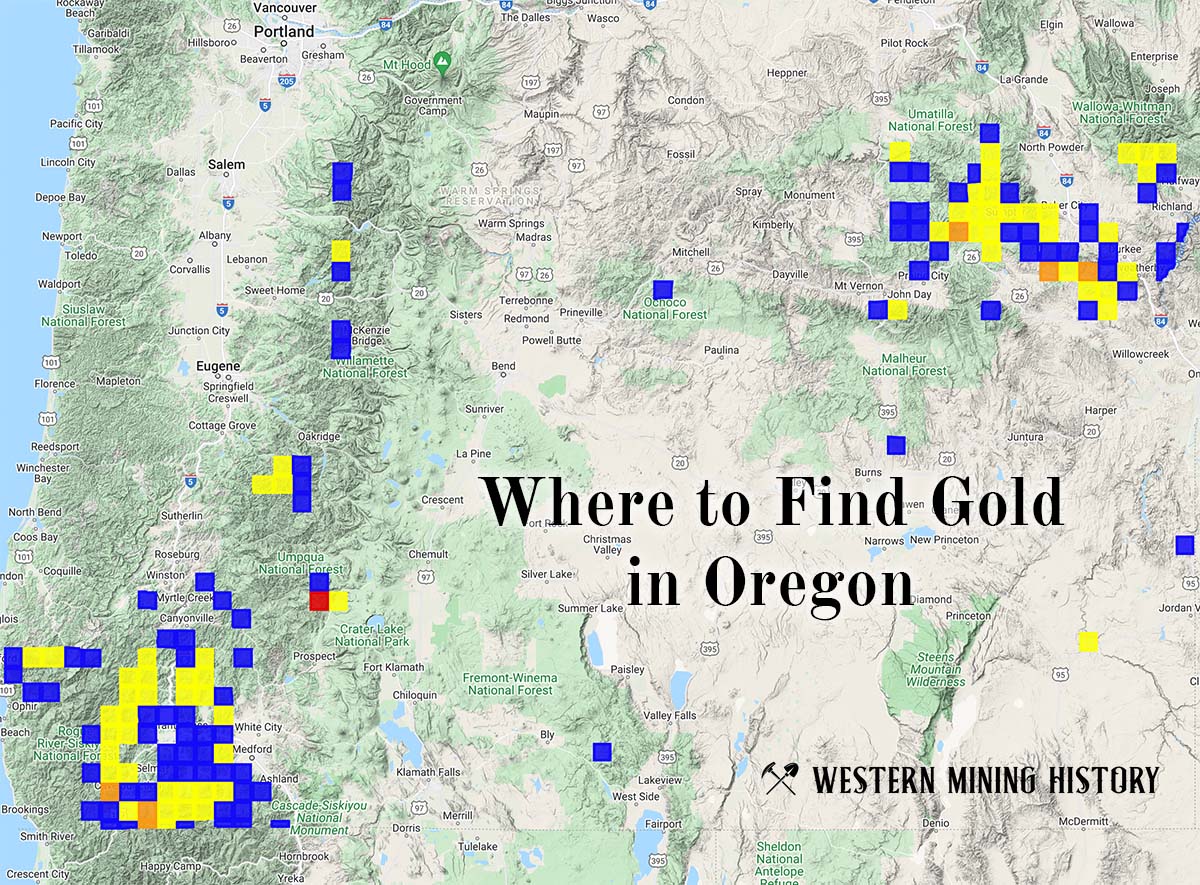The Blue Bull is a mercury, copper, and arsenic mine located in Harney county, Oregon.
About the MRDS Data:
All mine locations were obtained from the USGS Mineral Resources Data System. The locations and other information in this database have not been verified for accuracy. It should be assumed that all mines are on private property.
Mine Info
Elevation:
Commodity: Mercury, Copper, Arsenic
Lat, Long: 42.17194, -118.66722
Map: View on Google Maps
Blue Bull MRDS details
Site Name
Primary: Blue Bull
Commodity
Primary: Mercury
Primary: Copper
Primary: Arsenic
Location
State: Oregon
County: Harney
District: Steens - Pueblo
Land Status
Not available
Holdings
Not available
Workings
Type: Surface/Underground
Ownership
Owner Name: Claude Wright And Vern Bossuot
Years: 1963 -
Production
Not available
Deposit
Record Type: Site
Operation Category: Occurrence
Operation Type: Unknown
Discovery Year: 1929
Years of Production:
Organization:
Significant: N
Deposit Size: S
Physiography
Not available
Mineral Deposit Model
Model Name: Epithermal quartz-alunite Au
Orebody
Not available
Structure
Type: L
Description: Fracturing
Alterations
Alteration Type: L
Alteration Text: Silicification
Rocks
Name: Rhyolite
Role: Associated
Age Type: Host Rock
Age Young: Holocene
Analytical Data
Analytical Data: ACCORDING TO WILLIAMS AND COMPTON (1953) THE AVERAGE TENOR OF THE VEINS IS ABOUT 5 LBS/TON HG
Materials
Ore: Malachite
Ore: Chrysocolla
Ore: Cinnabar
Ore: Chalcopyrite
Gangue: Opal
Gangue: Chalcedony
Gangue: Kaolinite
Gangue: Limonite
Comments
Comment (Production): NO QUICKSILVER IS KNOWN TO HAVE BEEN RECOVERED DUE TO REDUCTION PROBLEMS CAUSED BY ARSENIC IN THE SCHWATZITE
Comment (Deposit): AVERAGE WIDTH OF THE VEINS IS ABOUT 5 TO 6 INCHES. THE MAIN VEIN PINCHES OUT 10 FEET FROM THE END OF THE DRIFT.
Comment (Geology): AN INTENSELY SILICIFIED PORPHYRITIC RHYOLITE INTRUSION CUTS THE PRE-TERTIARY GREENSTONES ABOUT 100 FEET NORTHWEST OF THE MAIN SHAFT
References
Reference (Deposit): 5) WILLIAMS, H. AND COMPTON, R.R., 1953, QUICKSILVER DEPOSITS OF
Reference (Deposit): MERCURY IN OREGON, 1965, USBM IC 8252, TABLE 26, P. 329.
Reference (Deposit): FREDERICK, F., 1945, STATE OF OREGON MAP SHOWING LOCATION OF QUICKSILVER DEPOSITS: OREGON DEPT. OF GEOL. AND MIN. INDUSTRIES, SCALE 1:1,000,000
Reference (Deposit): ROSS, C.P., 1942, QUICKSILVER DEPOSITS OF THE STEENS AND PUEBLO MOUNTAINS, SOUTNERN OREGON: USGS BULL. 931-J, P. 227-258
Reference (Deposit): BROOKS, H. C., 1963, QUICKSILVER IN OREGON: OREGON DEPT. OF GEOLOGY AND MINERAL INDUSTRIES, BULL. 55, 223 P.
Oregon Gold

"Where to Find Gold in Oregon" looks at the density of modern placer mining claims along with historical gold mining locations and mining district descriptions to determine areas of high gold discovery potential in Oregon. Read more: Where to Find Gold in Oregon.